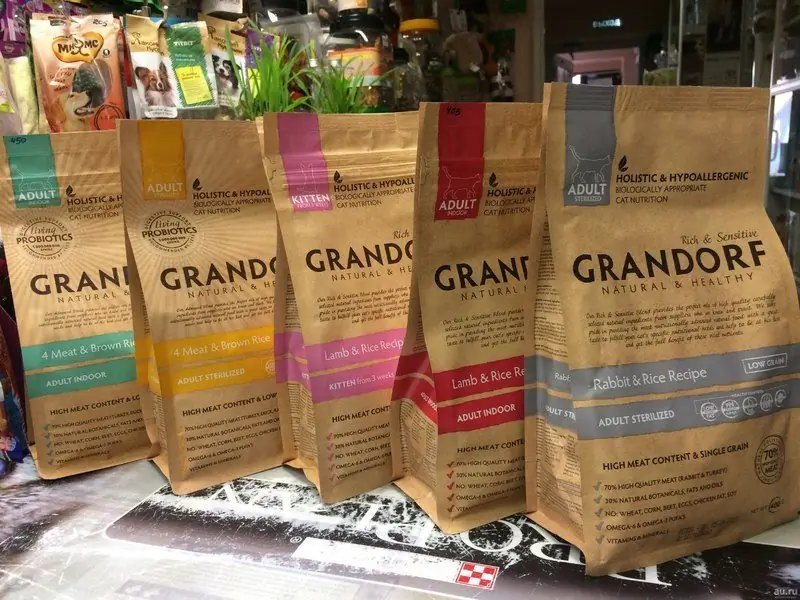
Table of contents:
- Author Bailey Albertson albertson@usefultipsdiy.com.
- Public 2023-12-17 12:53.
- Last modified 2025-06-01 07:32.
Rating of cat food according to veterinarians: choosing the best
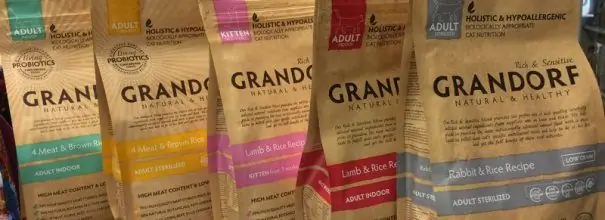
The choice of cat food is a responsible occupation, since its health depends on the nutrition of the animal. The task is complicated by the fact that the cost of a product does not always correspond to its quality. Even a high price does not guarantee the safety of the finished ration. It is important to be able to navigate among brands and brands on your own, as well as to monitor the rating of cat food.
Content
-
1 What should be the composition of a good cat food
- 1.1 Dry food
- 1.2 Wet food
- 2 Which cat food is best: dry or wet
- 3 Classification of feed
-
4 Rating of cat food according to veterinarians
- 4.1 Cheap feed
- 4.2 Average cost feed
- 4.3 Expensive feed
- 5 Veterinarian Reviews for Cat Food
What should be the composition of a good cat food
First of all, food for daily nutrition should be complete. This means that the product contains all the essential amino acids, vitamins and minerals. All other foods can be classified as treats. They cannot be the basis of regular nutrition and should only be used as a supplement. The optimal list of ingredients depends on the type of feed.
Dry food
Due to the peculiarities of preparing granular ready-made diets, manufacturers can include a wide range of additives in the product: herbs, fruits, vegetables, individual substances, offal, etc. Most often, the list of components in dry food is much longer than that of spiders or pates. In most cases, laconic lists are found in budget products, but there are exceptions.
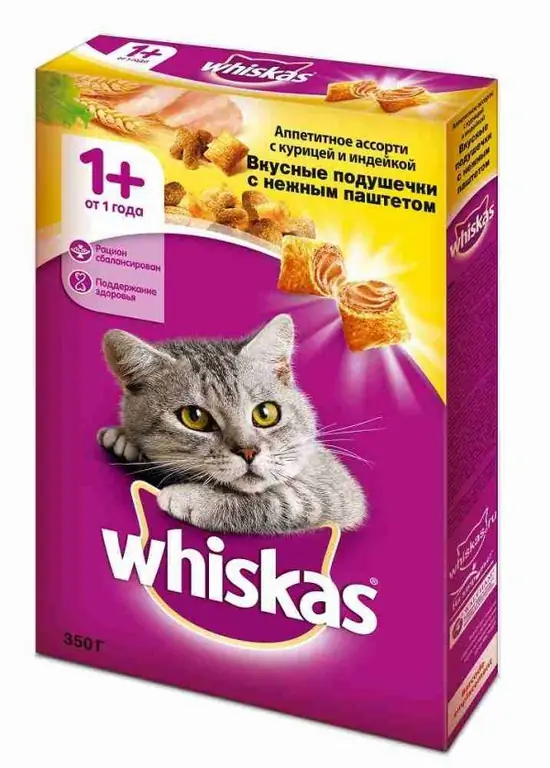
Whiskas is a classic example of a poor quality feed: the whole composition is reduced to general names, the type of raw material is not specified, in addition, cereals are in the first place
The first positions in the composition of dry food should be occupied by meat. This is a staple on the predator menu. The more the diet matches the natural one, the better. It is allowed to use several types of meat components: fish, duck, turkey, chicken, rabbit, etc. Sometimes there are such rare ingredients as wild boar, deer and quail. Foods made from unusual meats are suitable for allergic cats. Such diets not only reduce the severity of symptoms, but also help to calculate the irritant.
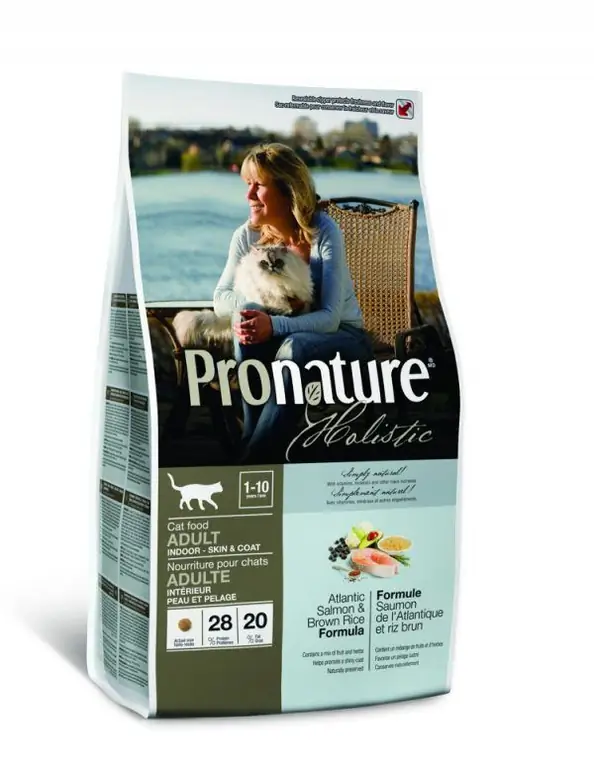
Holistic can be safely used instead of specialized hypoallergenic feeds: such diets, if they contain cereals, are in small quantities and of high quality
The following positions after meat can be occupied by offal and various ingredients of animal origin. Eggs are often used as the latter. Offal can vary in nutrient content. If the manufacturer has indicated a laconic general name, it is likely that the composition includes various industrial waste that have almost zero value. Specific names are preferred. For example, chicken liver, lamb lung, etc.
Prophylactic supplements should be at the end of the list. They can be of plant or animal origin. For example, crab shells contain glucosamine and chondroitin, which help improve joint health. Cranberries oxidize urine and prevent the development of urolithiasis. The presence in the feed of the general name "vitamins and minerals", as well as an excess of such additives in pure form, is not encouraged.
Wet food
Due to the technology for preparing wet feed, the possibilities in terms of enriching the composition are much more modest. Quality products consist only of meat and offal, as well as water. Sometimes you can find cereals on the list, but if their share is insignificant (less than 3%), then there is nothing wrong with that. Small amounts of fruits and vegetables may be used by the grower to provide fiber to the feline body. The presence of flavors, sugars, flavor enhancers is not allowed. Do not give cats wet food, in which cereals and vegetables are located in the first positions in the composition.
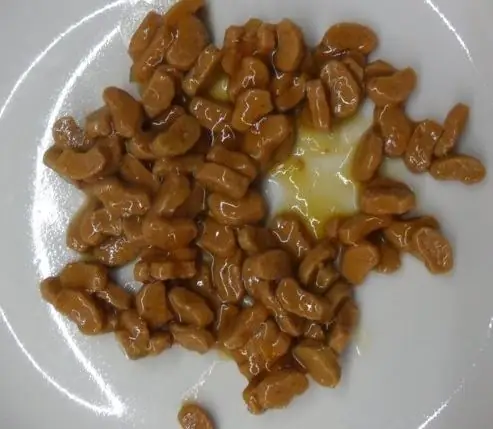
Royal Canin wet food is a kind of anti-example: the pieces in it are unnaturally identical and without fibers, and the color is unnatural and close to caramel, which suggests the use of soy and dyes
In order for the feed to be complete, manufacturers add pure vitamins and minerals to it. In the case of spiders and pates, this is the only possible solution, since it is almost impossible to create a balanced and chemically stable food without the use of dehydrated herbal supplements. Since trace elements in their pure form are not completely absorbed, in most cases, after such a diet, animals suffer from nutritional deficiencies. For example, my neighbors give their cats wet food Sheba. One of the favorites, after such a diet, began to crawl hair in shreds, the other combs the ears and the area above the eyes until there is blood. This is most likely due to allergies or vitamin or amino acid deficiencies.
Which cat food is best: dry or wet
It is incorrect to compare dry and wet food, since the former can be used for systematic feeding, while the latter cannot. Granular products are distinguished by a more suitable consistency and versatile composition. Hard fibers stimulate digestion, help remove food debris from the mucous membranes and cause natural cleansing of the paranal glands. Wet feed cannot provide such an effect due to the peculiarities of their texture.
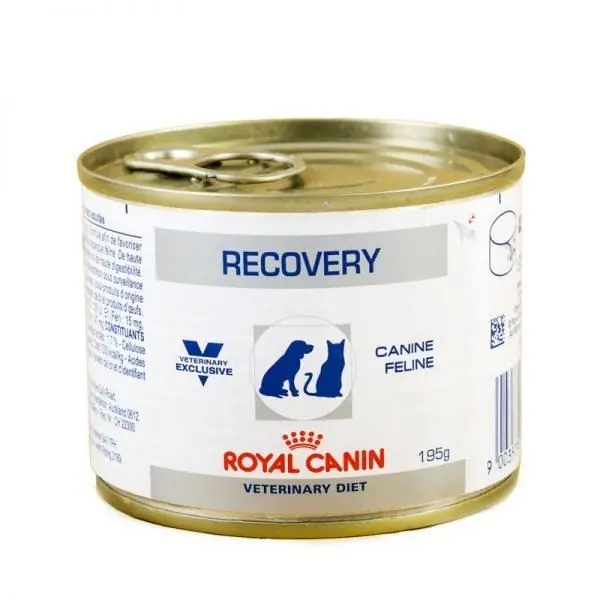
Despite the frankly weak composition, the specialized Royal Canin wet food can be used for quick adaptation during rehabilitation: it is easily absorbed and less damaging to the gastrointestinal tract.
With prolonged feeding on pates and spiders, animals have a digestive disorder, the paraanal glands may become clogged. In rare cases, their inflammation and infection can be fatal. However, wet feed should not be discounted as it is indispensable in the presence of diseases in animals and during rehabilitation. For example, my cat has sensitive digestion. After dry food, from time to time, blood appears in her feces due to a violation of the integrity of the vessels. For myself, I found this way: I feed her with pate and granules of the same brand separately. Only in this mode her digestion is normalized.
Feed classification
Conditionally dry and wet food is divided into 4 categories:
-
Economy. The cheapest and most dangerous feed that contains almost no meat. Compositions are replete with generic names, which suggests that manufacturers are using low-quality raw materials or regularly changing the recipe. In the first places, cereals are most often located.

Friskies Economy Class Dry Food Most often, pet owners buy economy class food out of ignorance: the price of such rations is formed primarily from the popularity of the brand and may exceed the cost of some little-known premium and super premium products.
-
Premium. The quality of feed is only slightly superior to the economy class. Meat in such products is only 10-20%. An ingredient of animal origin may be in the first place, but most often it is presented fresh, that is, taking into account water. In addition, it is followed by several types of cereals.

Royal Canin dry food for Bengal cats Royal Canin dry food in Russia belongs to the premium class, but in other countries it does not even reach this mark in quality.
-
Super premium. This food can be used for regular nutrition, but does not meet all the biological needs of cats. The composition still contains cereals and other ballast components. Pure vitamins and minerals may be present. The share of meat is 30-50%. It is advisable to use feed of this category as an intermediate link when transferring to holistics.

Super premium food Most brands of quality products are not popular due to high prices, low availability and lack of advertising, however, they can be included in the cat menu
-
Holistic. The ready-to-eat diets are formulated with the characteristics of a natural feline diet in mind and meet all requirements. The composition is based on meat components. They are complemented by organ meats and plant ingredients that are needed to get all the nutrients it needs.

Holistic for cats The cost of holistic is much higher, but in the end they can help save: because of the high nutritional value, animals need less feed to saturate
Manufacturers can change the recipe at any time, so it is advisable to be able to analyze the composition yourself. Similar changes often occur with brands that are acquired by large corporations. For example, after the rights to the brands Eukanuba and Royal Canin were bought by Mars, the first super premium category moved to the premium class, and the quality of the latter feeds is approaching economy class.
Veterinarian rating of cat food
Since the quality of feed in general is very dependent on their cost, we will conditionally divide ready-made rations by price category.
Cheap feed
Let's clarify right away that we will take the price of the most common budget product as a benchmark. The price of "Whiskas" dry food is 1100-1200 rubles. for 5 kg. The average cost of 1 kg is approximately 230-240 rubles. The rating includes the following brands:
-
Advance. This is a premium food that contains both fresh and dehydrated meat. The former is usually at the top of the ingredient list. Dehydrated meat comes in either second or third place. In kitten food, the percentage of components of animal origin is higher. It contains a lot of cereals, including maize, which often causes allergies, but the value for money is good. Large bags (15 kg) cost on average 4000-4200 rubles. The cost of 1 kg is approximately 260-280 rubles.

Dry food Advance The composition of the feed is far from ideal, but much better than budget counterparts
-
Farmina (Fun Cat economy class food line). The first place in the composition is taken by meat flour, followed by several types of cereals. Additionally, in the list of components, you can find several more types of meat flour. Confused by the presence of generic names, as well as the presence of wheat and corn. The cost of large bags is 3600-3800 rubles, 1 kg - 180-190 rubles.

Farmina Fun Cat dry food The corporation also produces low-grain and grain-free feed, but their cost is higher
-
Frank's ProGold. Some suppliers classify the produced feeds as super premium, but in fact they correspond in quality, rather, to the premium class. The first place in the composition is occupied by dehydrated meat, then several positions of cereals follow. Additionally, the list includes dehydrated fish, fish oil and egg powder. Large bags (7.5 kg) cost 2100-2200 rubles. The average cost of 1 kg is 280-290 rubles.

Frank's ProGold dry food The price of dry food is slightly higher than that of popular representatives of the economy class, but it is also consumed more slowly
-
Organix. Balanced premium dry food. Dehydrated meat is in the first place in the composition, followed by rice and maize. Additionally, the list includes barley kernels. There is also fishmeal, fish oil, brewer's yeast, cartilage and other preventive additives. The average cost of a large bag (18 kg) is 3700-3800 rubles, 1 kg - 200-210 rubles.

Organix dry food Among budget feeds Organix is one of the most balanced products: preventive additives help smooth out the poor composition and maintain the health of the animal.
Unfortunately, due to the lower prevalence and less aggressive marketing, the products of these brands are rarely found in retail outlets. It is easier to buy food from online stores.
Medium cost feed
In the rating of feeds in the middle price segment, we will include products with an average cost of 300-500 rubles. per 1 kg when buying a large package. The list of brands includes the following brands:
-
Gina Cat Rabbit & Rice. This is a complete dry food for adult cats. The first positions in the composition are occupied by chicken and rabbit meat. They are followed by barley, oats and rice. The food is unique in that it is a hypoallergenic diet. A large bag (18 kg) costs 5700-5800 rubles, the average cost of 1 kg is 320-340 rubles.

Gina dry food Unfortunately, poultry protein is present in the feed, so if you are allergic to poultry and not to cereals, you will have to consider another option.
-
Go! The line includes grain-free and low-grain forages. In the composition you can find preventive additives: cranberries, salmon oil, alfalfa, etc. The cost depends greatly on the type of feed. The price of rations for cats without special needs is about 440-450 rubles. for 1 kg.

Grain-free dry food Go Dry food Go! is one of the cheapest among grain-free; it contains peas and potatoes as fillers, but they are better absorbed than cereals
-
Karmy. The premium feed contains several types of meat and whole brown rice. These diets can be recommended for allergic cats. The manufacturer uses prophylactic additives: Yucca Shidigera, probiotics, apples, etc. The average cost of 1 kg is 300 rubles.

Dry food for cats Karmy Of course, 42% of veal is not yet a high meat content, but the indicator is much better than in many cheap counterparts.
-
Summit. The main ingredient is dehydrated meat, but it is followed by several plant-based ingredients: peas, rice, oatmeal, and potatoes. The pluses include the absence of corn and wheat. In general, this is a good cheap super-premium food: on average, 1 kg costs 320-330 rubles.

Summit dry food Due to the balanced composition, the manufacturer suggests giving food not only to adult cats, but also to elderly animals and kittens, however, we recommend the latter to choose a more saturated holistic
Expensive feed
When compiling the list, we took into account feed, the average cost of which exceeds 500 rubles. for 1 kg. The rating includes the following brands:
-
Orijen. This is the elite among dry food: the meat content reaches 80-85%. The diet fully meets the natural biological needs of cats. Unfortunately, the balanced composition can be attributed to the disadvantages at the same time: the product most often causes indigestion in those animals that previously ate budget feeds. The average cost of 1 kg is 750-800 rubles if you buy large bags.

Dry food Orijen The corporation offers unexpected taste solutions: meat of elk, wild boar, goat, etc. is added to the feed.
-
Acana. The feed of this brand contains less meat, therefore it is better suited for animals with individual digestive characteristics, and can act as a transitional link. The average cost of 1 kg is 750-800 rubles.

Acana dry food line For the production of dry feed, only high-quality raw materials are used: animals are raised on free grazing without the use of antibiotics and hormonal drugs, and wild fish are caught in natural reservoirs
-
Grandorf. The feed contains several types of meat. In the list of ingredients for low-grain diets, there is whole brown rice, which ranks 4-6. It rarely causes allergies, but it is also of no value. The line includes grain-free rations. As with other holistic foods, the feed is enriched with preventive additives. The average cost of 1 kg is 700-750 rubles.

Dry food Grandorf In terms of the proportion of meat, Grandorf lags behind some holistics, but due to its balanced composition and probiotics, it is often perceived by animals better
Reviews of veterinarians about cat food
The health and life of a cat depends on the quality of dry food. It is better not to experiment with the pet's body and get the best for it. In extreme cases, with financial constraints, you can always find feed of acceptable quality, which is not more expensive than the products of "Whiskas". You will most likely have to look for diets of little-known brands, but it's worth it.
Recommended:
Bald Cats: Popular Breeds, Their Descriptions And Photos, How To Care For And Feed Cats, Owner Reviews
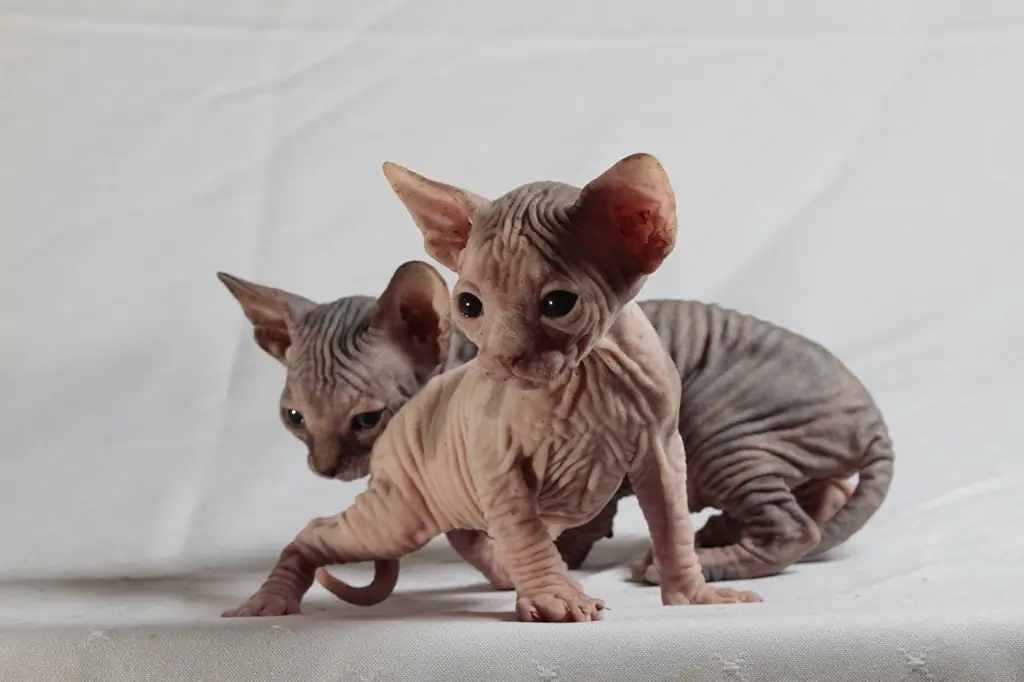
The history of the appearance of cats without hair. Bald cat breeds. Features of caring for an unusual pet. Photo, video. Reviews
Medical Veterinary Food For Cats: Indications For Use, Review Of The Best Brands, Reviews Of Veterinarians And Owners
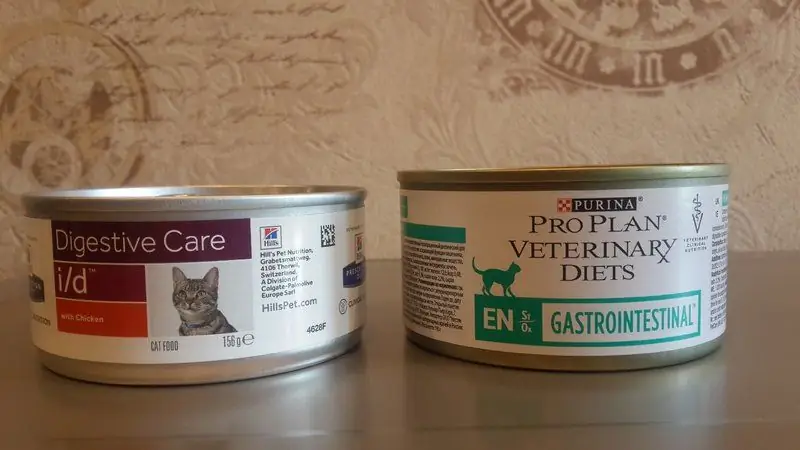
How veterinary medicated feeds differ from conventional ones. Which brand is better to choose. Can I mix several types of feed
Medicinal Food For Cats With Gastrointestinal Diseases And Sensitive Digestion: A Review Of Popular Brands, Reviews Of Veterinarians And Owners
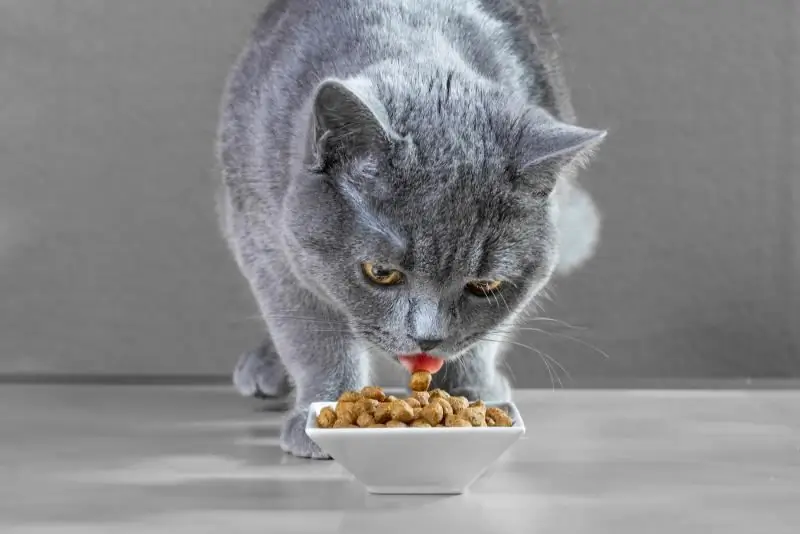
What ready-made food to choose for a cat with gastrointestinal diseases. How to change the menu if the animal prefers natural food. What should not be given to a pet
Rating Of Wet Food For Kittens: Which Is The Best, A Review Of Famous Brands, Premium Class, Reviews Of Veterinarians And Owners
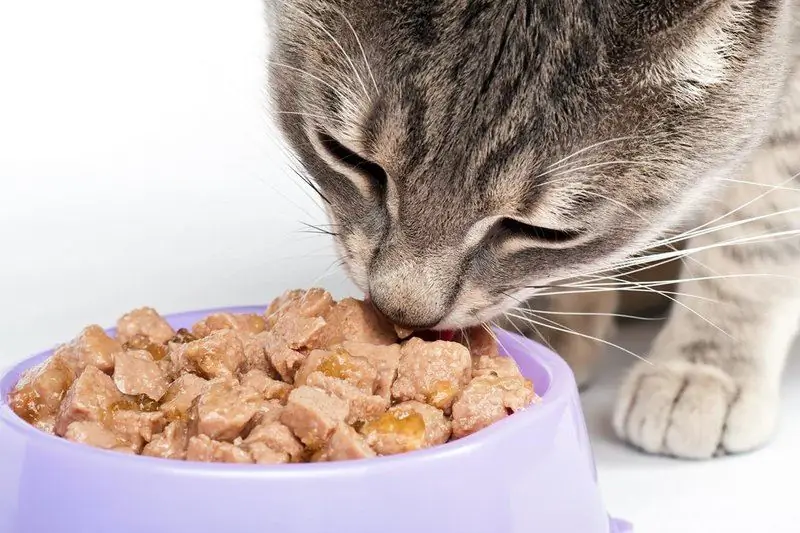
How to feed kittens with pate, jelly and spiders. Is it possible to transfer a pet to a mono diet. What wet food is better to buy a kitten
What Dry Food To Feed A Kitten: The Age From Which You Can Give, A Review Of The Best Brands, Rating For 2019, Reviews Of Veterinarians
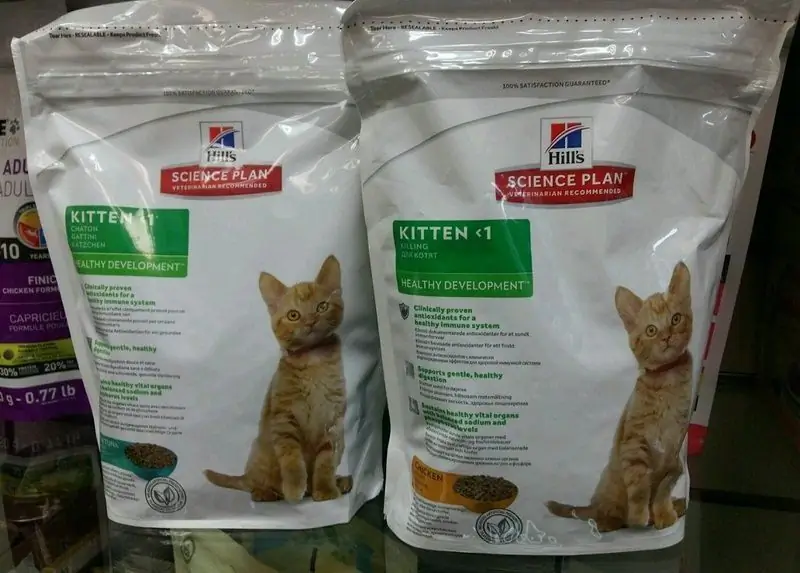
At what age a kitten can be given dry food. Which brand to choose. What should be included in kitten food
